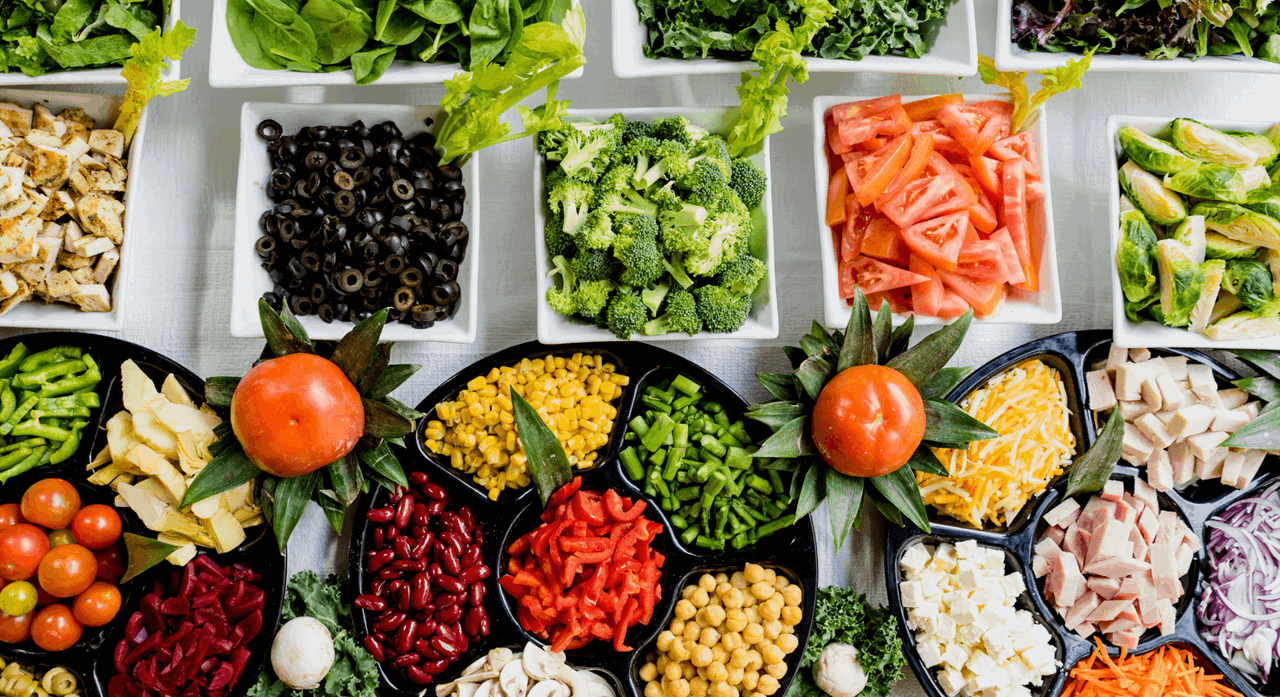Back in 2010 Lime Venue Portfolio took on a piece of research to understand the importance of food at events. The research created one of the most repeated statistics in the event food sector; that 40% of all event feedback was ‘food related’.
It showed that food was something delegates felt empowered to talk about, that it was something they could feedback on freely, constructively, positively or negatively, but that it also coloured their overall opinion and experience of the event.
Lime Venue Portfolio felt that the 40% statistic was due an update, but also that we should look into the future of event catering and find out what organisers and delegates see coming down the road.
The survey was conducted amongst event organisers including in-house, third-party agencies and freelancers. Here is what it found.
Food tops delegate feedback
45% of all event feedback is now based on food and beverage, indicating a 5% rise since that first piece of research over 10 years ago. This is a slight but very significant growth, more so when set in context that it was ahead of crucial aspects such as ‘content’, which equated to 27% of event feedback, and ‘location of the venue’ which accounted for 18% of feedback.
The importance of food was further compounded as the research turned to the average percentage of spend that goes into event food. In a pre-covid year, the majority (56%) of events would spend between 30% - 40% of the entire event budget on food, with some (3%) of events spending in excess of 70%. Again, this sets into context both the financial importance of food, and its effect on delegate satisfaction of the event.
However, Lime Venue Portfolio believe we should not be jumping to two, perhaps easy, assumptions; the first is that all of this feedback is either positive or negative, it’s about delegates’ comfort in talking about food in general; secondly, and more importantly, that this is just about people liking food more. The research shows that food is part of a much bigger and more crucial trend in the world of conference and events.
The rise in 'green eating'
The research explored a number of other key trends around the decision making process of choosing event food. Here the survey showed that, while ‘Taste’ and ‘Price’ remain the key motivators, a new kind of agenda is emerging. ‘Healthiness’, ‘Environmental Sustainability’ and ‘Ethical Sourcing’ all came close behind, with ‘The Food Chain’ next on the priority list.
However, when asked to predict how these priorities would change in the future, the majority of event organisers identified ‘Healthier Food’ and ‘Enhanced Dietary Requirements’ as the top two considerations. This only adds further credibility to Lime Venue Portfolio’s belief that the ethical sourcing and sustainability of food will rise up the agenda for event planners as they continue to take responsibility for the environmental impacts of events; and more specifically event food.

Dietary requirements: 'green eating'
This move towards sustainable food remained a constant throughout the survey and was further underlined when respondents were asked about dietary requirements. At present, the majority of event organisers suggested that the average amount of dietary requests was 20%, however they predicted that this number would grow to 40% by 2030. Similarly, when asked about how delegates identify themselves, respondents suggested major growth in those that see themselves as plant-based, plant-first, vegan or vegetarian.
The opinion of those at Lime Venue Portfolio, is that this increase in ‘plant-based’ eating should be seen as separate from historic vegan and vegetarian requirements, but as a statement on environment and sustainability. The brand has been a long supporter of a move towards more plant-based diets and the carbon savings that can be made by cutting out some meats; most specifically beef. These messages are now very much in the public domain and a new breed of ‘green eaters’ are entering events every day.
This green agenda was further supported later in the study as event organisers were asked to assess the importance of food waste. Waste is a subject covered substantially in chapter one of Beyond Food, however the conversation has since moved on as event organisers, venues and delegates have looked to form a bond around defeating food waste together. The vast majority of event organisers are taking this approach, and Lime Venue Portfolio are hoping to see the trajectory of #FORO continue to rise.
Leadership
Finally, the survey showed a small but significant sea change in the leadership involvement around events. In the past the, somewhat clichéd, view of event food was that the menu was geared around the individual taste of one key individual. However, only 11% of respondents confessed that the MD / CEO’s palette was most important in the decision making around menu choice. Pleasingly, the majority (60%) left the choice to the delegate. However, interestingly, 19% said that it was the values of the company that was most important when making decisions around food. This is a trend that Lime Venue Portfolio will continue to watch, as it shows that more and more company values are dictating the strategy and direction of event programmes.
Equally, companies are more and more committed to putting budget behind ethical acts within the event programme. In terms of the financial conviction around sustainable menus, the survey showed 72% of respondents would be willing to pay more for a demonstrably more sustainable menu, with 48% suggesting they would be willing to pay up to 10% extra and 19% willing to pay up to 20%.
Not all sustainable menus need to be more expensive, many are cheaper. However, the significance of this part of the report is that businesses and brands are committing to sustainable food with finance as well as values. An important move which could super charge the move towards greener events.




